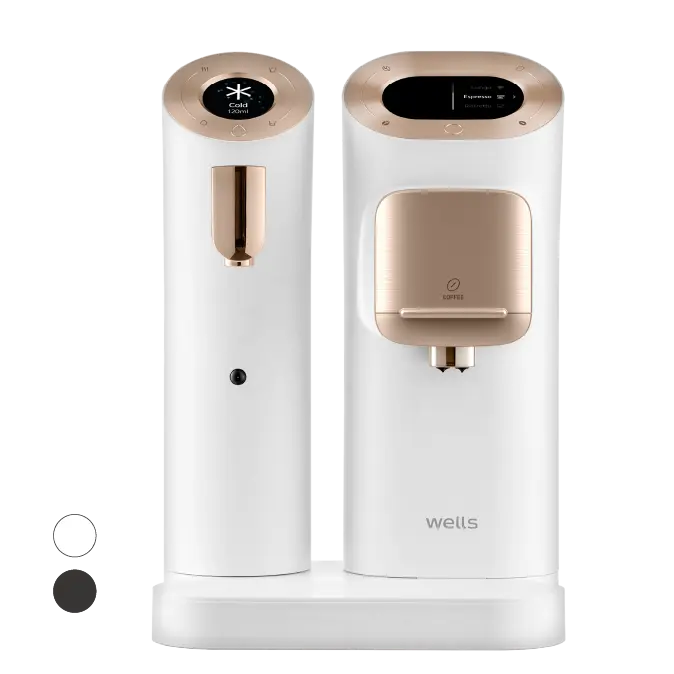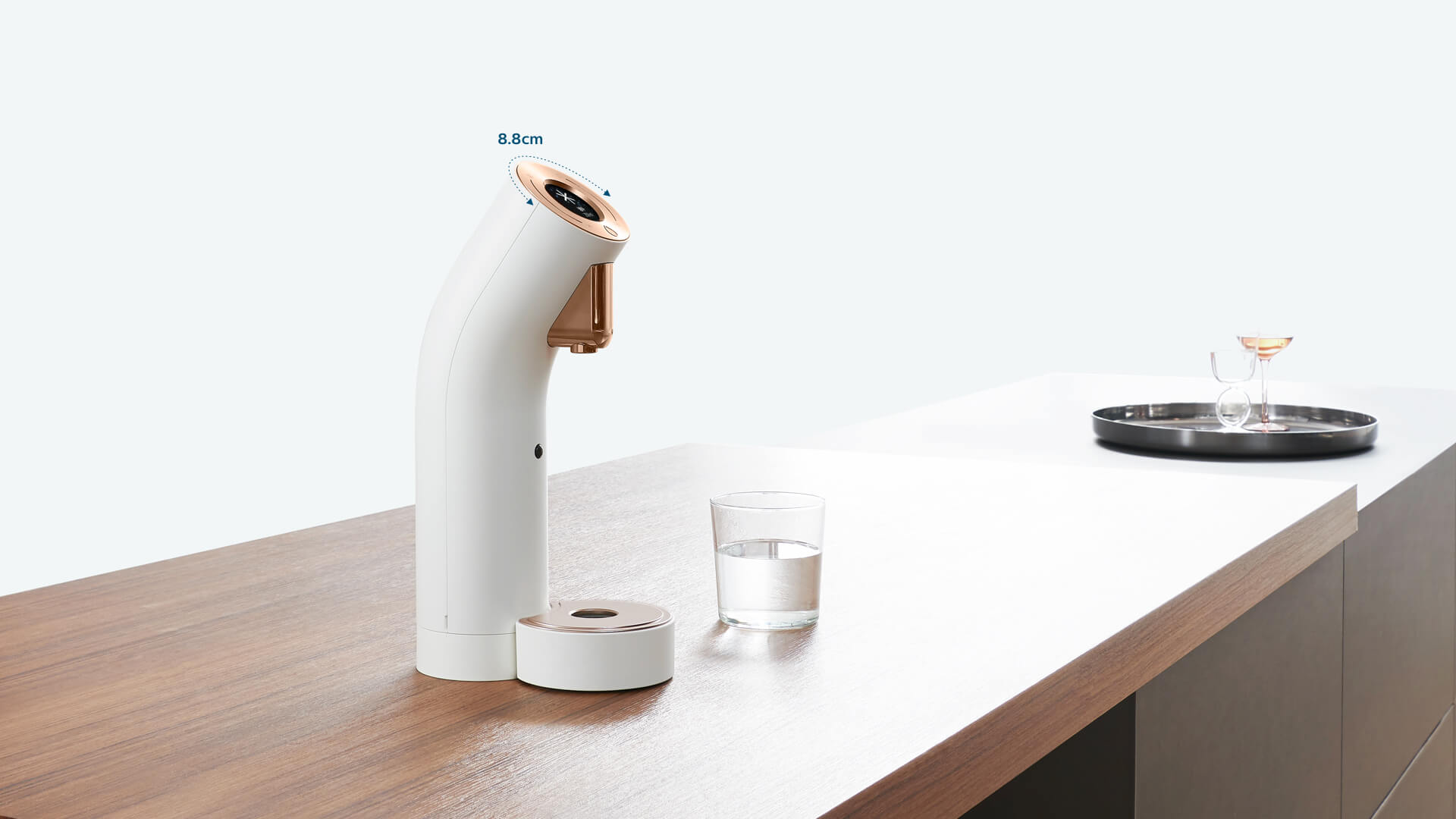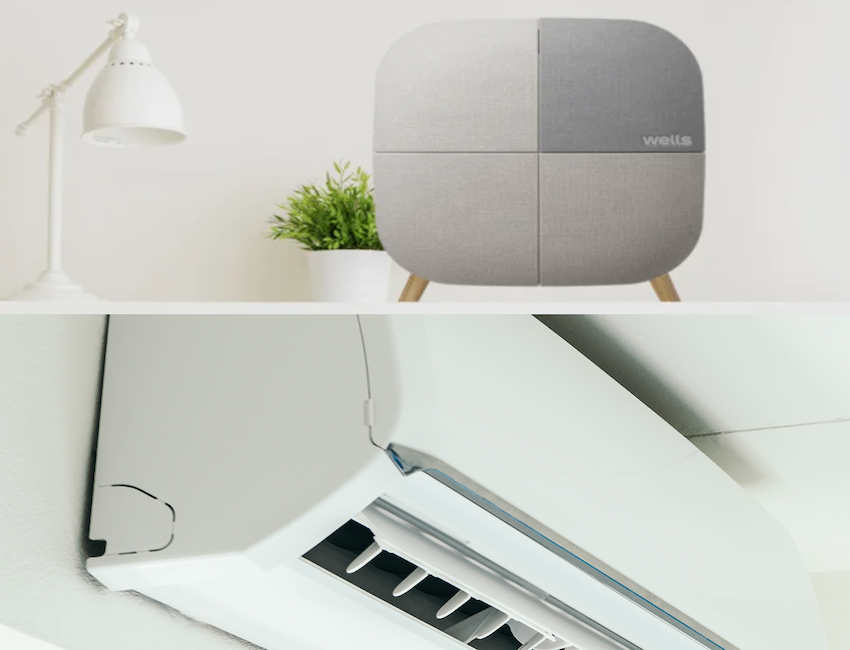With the increasing frequency and potency of heat waves, improving indoor air quality is indispensable more than ever. However, suppose you live somewhere where temperatures soar in the summertime (or even just a little warmer than ideal). In that case, this warmth isn’t welcome —especially when it makes your home closer and worsens indoor air pollution.
If you want to improve indoor air quality, you can use some of the best-selling air purifiers and even air conditioners. An air conditioner cools the temperature and purifies it to regulate humidity for an optimum indoor condition. Air purifiers have the capability to completely filter pollutants in the air, containing dust, fumes, and smoke from your surroundings that may be harmful.
Knowing the few differences between air conditioners and air purifiers can easily lead to ideal indoor quality results over time. In this article, we will delve into what they do, why you need them, and how the units can work together harmoniously for a better living environment.
What is an Air Conditioner?

An air conditioner is a system or device used to control the temperature, humidity, and usually purity of an indoor environment. Most systems are predominantly set up to cool air to get rid of heat and moisture, meaning you can sit in the cool air when it is hot.
Air conditioning works by pulling warm air from the room and running it over coils filled with coolant. The heat from the air is absorbed during this process and then expelled outdoors, while only cooled-down air is circulated back into a room. Furthermore, in a typical domestic AC, the cooling efficiency can be improved with the aid of the right curtains and blinds to help reduce heat gain from solar radiation entering through windows.
What is an Air Purifier?
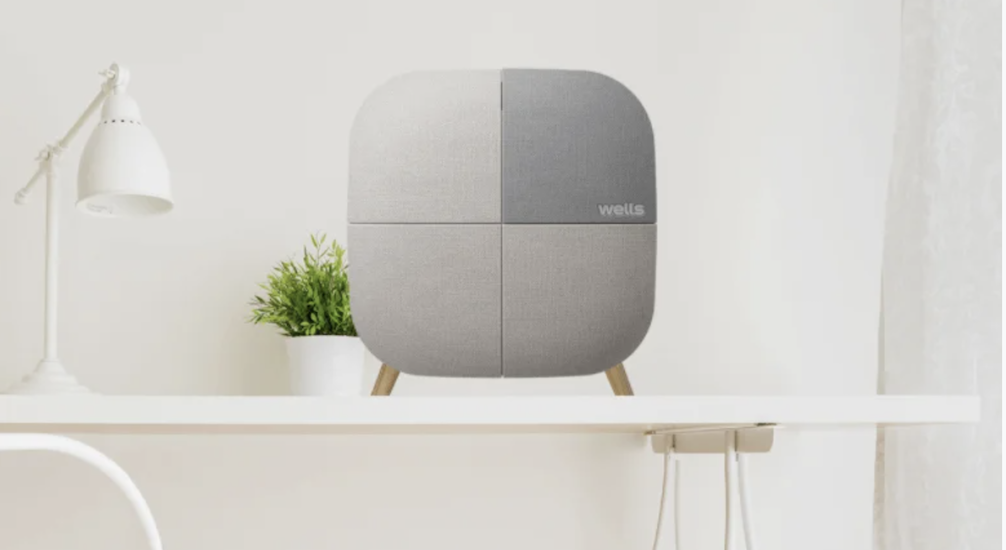
An air purifier is a device designed to remove contaminants from the air inside your room, home, or office. It does what it can to get rid of debris, including dust, pollen, pet hair, and even smoke, in your house so you may breathe better.
Air purifiers use a process known as multi-stage filtration. Typically, they pull in the room air and pass it through some filters. Crucial filters necessary include:
- Pre-filters: Capture larger particles like dust and hair.
- HEPA filters: High-efficiency particulate Air (HEPA) filters trap smaller particles, including allergens and some bacteria.
- Activated carbon filters: Absorb odors and volatile organic compounds (VOCs).
Because of this, more sophisticated air purifiers have UV lights or ionizers that help deactivate bacteria, viruses, and other organic particles. Air purifiers are designed to do this by cycling air through special filters that strain out particles, contributing to maintaining a cleaner indoor environment.
Key Differences Between Air Conditioners and Air Purifiers
| Feature | Air Conditioner | Air Purifier |
| Primary Function | Cools the indoor environment by removing heat and humidity | Cleans the air by removing pollutants like dust, allergens and smoke |
| Goal | Enhances comfort by lowering temperature and controlling humidity. | Improves indoor air quality by eliminating airborne particles and contaminants. |
| Key Components | Compressors, condensers, evaporators, and refrigerants. | Pre-filters, HEPA filters, activated carbon filters, UV light, ionizers. |
| Operating Mechanism | Uses a refrigeration cycle to cool the air. | Uses filters to capture and neutralize airborne particles and contaminants. |
| Health Benefits | Controls temperature and humidity; may indirectly reduce mold growth and dust mites. | Directly removes allergens, dust, smoke, and other harmful particles from the air. |
| Limitations | Does not actively remove pollutants or improve air quality. | Does not control temperature or humidity. |
Combining Air Conditioners with Air Purifiers
Although there are obvious differences between air conditioners and air purifiers, utilizing both can be very useful in achieving optimum comfortability and maintaining an excellent indoor environment. They both act as supplementary choices to air conditioners — carrying out enhanced filter types and helping you in the heating-up process.
Air purifiers are continually working to filter out particulate and gaseous pollutants from your environment. They suck air into the unit from your living space and push it through different types of filters (pre-filter, HEPA filter) or activated carbon to catch dust, allergens such as pollens, mites, dander, smoke, and odors. Some more advanced models even utilize UV light or ionizers to kill bacteria, germs, and other microscopic life forms. The filtration continues continuously, guaranteeing the air is kept clean of potentially harmful particles.
Using both air conditioners and air purifiers in tandem offers several benefits for an enhanced indoor environment:
- Better Air: Although air conditioners do their best to lower humidity and air purifiers reduce mold and dust mites, these machines do not remove contaminants from the ambient environment to make things cleaner.
- Increased Comfort: An air conditioner is designed to keep the indoor temperature at a comfortable level so that in hot weather, everyone can get some relief. Its dehumidifier also works to reduce humidity, which gives you comfort and even coolness. Air purifiers are toys; their materials ensure the air you breathe is free of impurities for added comfort.
- Health Benefits: Combining these devices can benefit individuals with respiratory issues or allergies. The air conditioner keeps the environment cool and less humid, while the air purifier removes allergens and pollutants, reducing the risk of respiratory problems.
- Energy Efficiency: Using an air purifier can help maintain your air conditioner’s efficiency. By keeping the air cleaner, the air conditioner’s filters are less likely to become clogged with dust and debris, allowing it to operate more efficiently and potentially extending its lifespan.
When to Use an Air Conditioner

Ideal Scenarios for Air Conditioner Usage
Air conditioners are most effective in environments that must be kept at a specific indoor temperature. If you must use an air conditioner, these are the best scenarios.
- Cold: Air conditioners help maintain the temperature in cold weather and facilitate cool surroundings on hot summer days.
- High Humidity: Air conditioners can lower humidity levels, reducing mold growth in damp climates and generally operating better than alternatives.
- Places to work/study: Keeps cool; more focused and productive in a controlled environment
- Health: Air conditioners relieve the stress of holding extreme temperatures for those with health issues such as asthma/heart problems.
Benefits in Different Climates
- Tropical Climates: In places of eternal hot and damp weather, air-conditioners become the bare minimum essential to make inside spaces inhabitable. They work to reduce heat stress and inhibit mold/ mildew growth.
- Moderate Climates: Air conditioners are incredibly useful in even temperate regions suffering from occasional heat waves. They provide shelter from the sun and help maintain an interior climate.
- Dry Climates: In arid areas, air conditioners cool the air and produce zero degrees of moisture, making the inside environments more pleasant.
Energy Consumption Considerations
While air conditioners offer significant benefits, it’s important to consider their energy consumption:
- Energy Efficiency: Choose energy-efficient models with high SEER (Seasonal Energy Efficiency Ratio) ratings to reduce electricity usage and lower utility bills.
- Smart Usage: Use programmable thermostats to optimize cooling schedules and avoid running the air conditioner when it’s not needed.
- Maintenance: Regular maintenance, such as cleaning filters and checking refrigerant levels, ensures that the air conditioner operates efficiently and consumes less energy.
- Alternative Cooling Methods: Combine air conditioning with other cooling methods, such as ceiling fans or natural ventilation, to reduce reliance on the air conditioner and save energy.
When to Use an Air Purifier
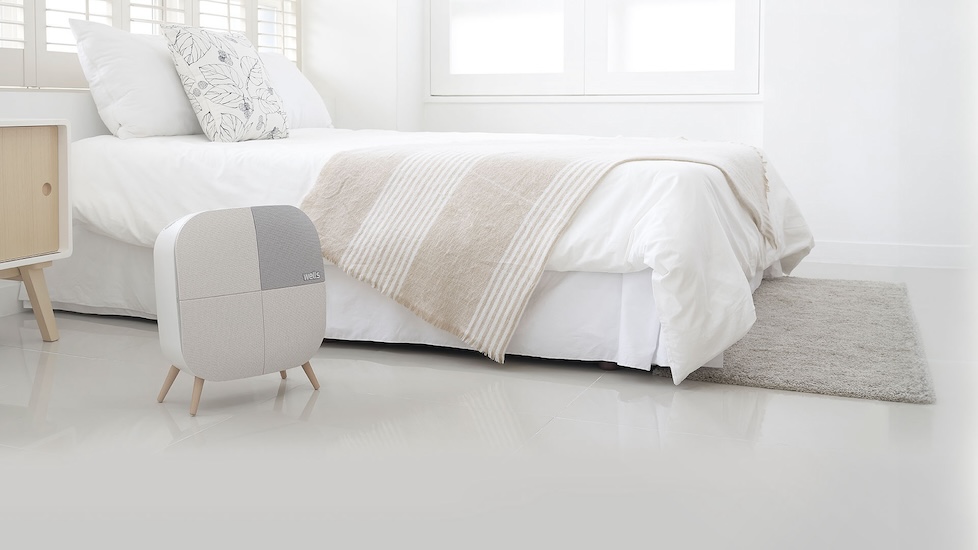
Situations That Necessitate an Air Purifier
Air purifiers are particularly useful in various scenarios where indoor air quality is compromised:
- Allergy Season: When pollen counts reach such high levels, air purifiers can reduce the number of allergens in your home, relieving allergies.
- Urban Atmosphere: An air purifier can help to filter out harmful particles in cities with high pollution levels due to propellers and industrial sources.
- Houses with Pets: Pet dander is one of the most extensive allergens. By removing these particles, air purifiers help make the surroundings more comfortable for those with allergies.
- Wildfire Smoke: In areas where wildfires are common, air purifiers can help remove smoke particles and improve indoor air quality.
- Replacing the mattress and pillows: Construction materials and new furniture in newly built or refurbished homes can release volatile organic compounds (VOCs). Air purifiers containing activated carbon filters can absorb this gas.
Benefits for Health and Wellbeing
Using an air purifier can offer numerous health benefits:
- Improved Respiratory Health: By removing pollutants such as dust, pollen, and smoke, air purifiers can help reduce respiratory issues and improve overall lung function1.
- Reduced Allergies: Air purifiers can significantly decrease the presence of allergens, providing relief from symptoms like sneezing, coughing, and itchy eyes2.
- Better Sleep Quality: Cleaner air can lead to better sleep by reducing nighttime allergies and respiratory irritations3.
- Enhanced Heart Health: Some studies suggest that reducing air pollution can have positive effects on cardiovascular health, potentially lowering blood pressure and improving heart rate1.
Choosing the Right Air Purifier for Specific Needs
Selecting the right air purifier involves considering several factors:
- Room Size: Ensure the air purifier is suitable for the size of the room. Check the Clean Air Delivery Rate (CADR) to match the purifier’s capacity with your room’s dimensions4.
- Type of Pollutants: Identify the specific pollutants you need to target. For example, HEPA filters are excellent for removing particles like dust and pollen, while activated carbon filters are better for odors and VOCs5.
- Noise Levels: Consider the noise level of the air purifier, especially if it will be used in bedrooms or quiet spaces. Look for models with adjustable fan speeds to control noise4.
- Maintenance: Check the maintenance requirements, such as filter replacement frequency and costs. Some models have washable filters, which can be more cost-effective in the long run5.
Why Ventilation Matters
Despite the importance of air conditioners for controlling indoor comfort in terms of temperature and humidity, there is no evidence to suggest that natural ventilation represents a risk reduction strategy. Some households function better in cooling with open windows and air conditioning, even if opening up your doors and allowing air to flow significantly boosts indoor air quality.
Reducing Indoor Pollutant Levels
Over time, indoor air gathers numerous pollutants, such as volatile organic compounds (VOCs) from household chemicals, carbon dioxide produced by human metabolism, and humidity that favors mold growth. Even though air purifiers efficiently absorb almost all these pollutants, gasses and odor cannot be captured. By opening windows, we can dilute and disperse these indoor pollutants with fresh outdoor air, reducing their concentration in the home and improving our overall IAQ.
Balancing Air Quality and Comfort
Air conditioners are great for regulating temperature; relative humidity tends to recycle the same dirty indoor air. If not, whether dust and other pollutants are likely to accumulate due to poor ventilation. Opening your windows occasionally and allowing fresh air into your home is crucial in balancing the benefits of using an AC with keeping the air breathable.
Enhancing Health and Wellbeing
Proper ventilation has various benefits. It can eliminate the chances of respiratory issues, allergies, and other health conditions caused by poor air quality inside. Getting rid of such bad smells can do wonders for improving cognitive functions and your health; ultimately, your house will be really fresh.
Practical Tips for Effective Ventilation
- For the best results, it’s recommended that you open your windows early in the morning and in the evening when the outside temperatures are cooler. This will allow you to bring in cool air without drastically affecting the inside temperature.
- Ventilation, wind waves from diagonal directions, opposite walls or at different house rooms. This allows air to be sucked more effectively while additionally drawing out the impurities.
- Even a 10-15 minute ventilation can significantly improve indoor air quality without excessively cooling the internal temperature.
Conclusion
To conclude, the air conditioner and purifiers determine how we feel at home. Air conditioners work more to cool the air and dehumidify it, so they are generally just as important during hot weather or in a humid climate. They boost comfort and have the side effect of helping with air quality by lowering moisture that mold likes to thrive in.
Air purifiers, on the other hand, are intended to eliminate dust and allergens as well as unpleasant smell. They also work well for people who might have respiratory problems and allergies, they clean the air by ensuring your living spaces have a healthy vibe.
It is important to understand the differences in these devices for your indoor air health. Air conditioners control temperature and humidity, unlike air purifiers, whose sole focus is removing particles in the indoor environment. Together, they give you a human-centric approach to an issue beyond just keeping the air comfortably warm or clean.
Natural ventilation through windows can also boost indoor air quality by preventing the continuous build-up of indoor pollutants. You can help your family feel better by allowing their bodies to make the final adjustments while playing around with air purifiers, opening windows, and using an air conditioner.


